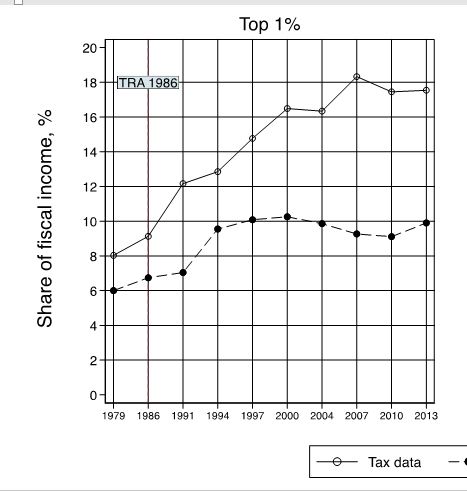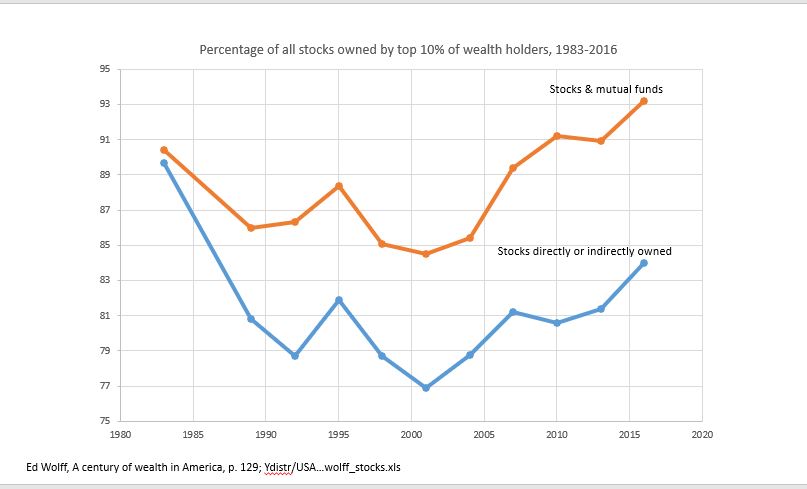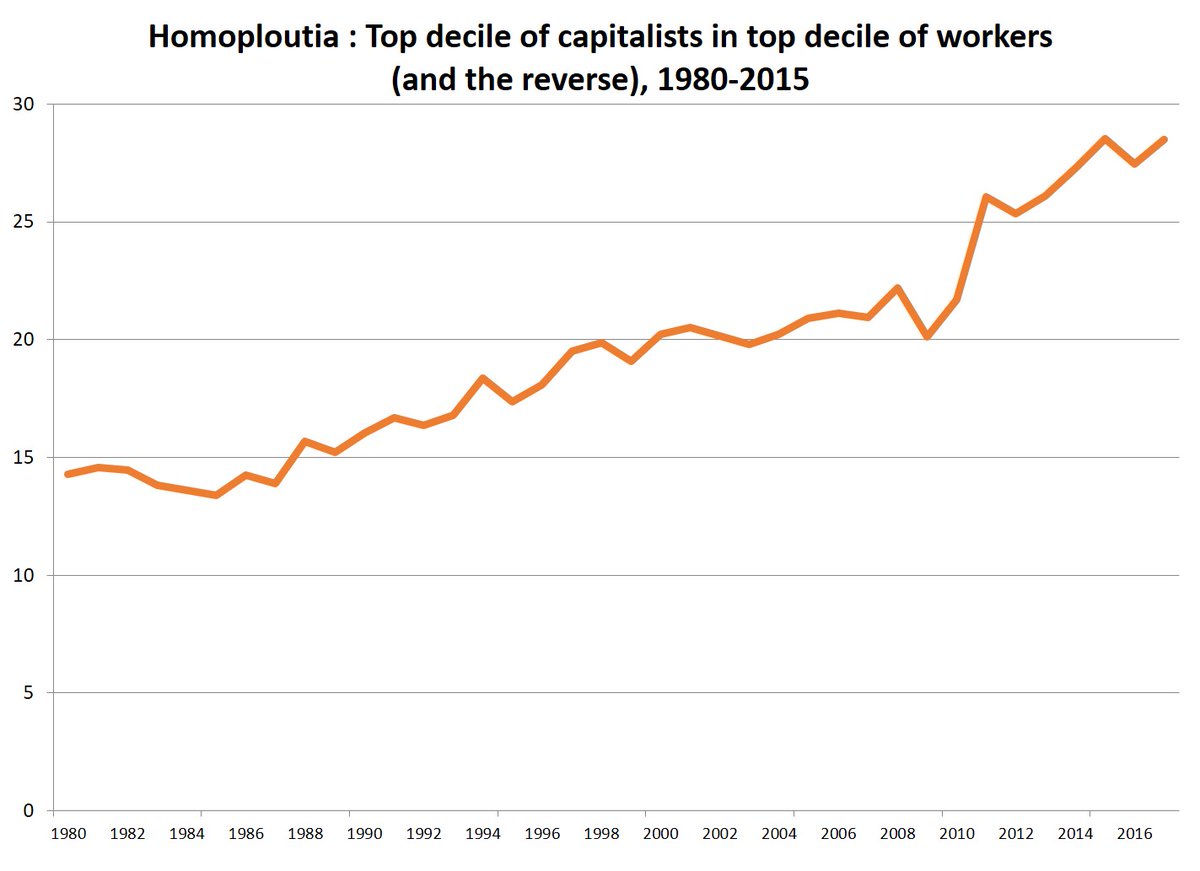
A new (first ever) paper contrasting in detail income from surveys and fiscal/tax data.
osf.io/preprints/soca…
In the case of the US, no difference in income levels and shares at all for percentiles 1-99, incl. practically no difference for percentiles 96-99.
osf.io/preprints/soca…
In the case of the US, no difference in income levels and shares at all for percentiles 1-99, incl. practically no difference for percentiles 96-99.

But there are significant differences when it comes to the top 1%. According to the tax data, the top 1% takes 18% of total income; according to surveys only 10%. 

Yet, an unknown part of the difference between the two sources is due to the fiscal data's **misclassification** of corporate income as personal income due to the tax reform in 1986.
Thus fiscal data may overstate true increase in the top 1% share. And surveys may understate it.
Thus fiscal data may overstate true increase in the top 1% share. And surveys may understate it.
The truth may lie in between.
• • •
Missing some Tweet in this thread? You can try to
force a refresh








